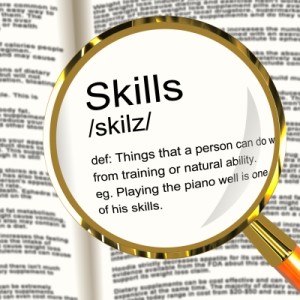 I hear time and time again there is a talent shortage and people in the workforce lack the necessary skills required by employers. And I often read articles saying that employee engagement is at an all-time low worldwide. Meanwhile many progressive business publications indicate there are numerous new opportunities in the global economy that have been generated because of technology.
I hear time and time again there is a talent shortage and people in the workforce lack the necessary skills required by employers. And I often read articles saying that employee engagement is at an all-time low worldwide. Meanwhile many progressive business publications indicate there are numerous new opportunities in the global economy that have been generated because of technology.
All these reports and articles are well researched and highlight the challenges and opportunities within our new global economy. However, when you start to link all the messages together, one underlining theme surfaces: we are in the midst of the greatest challenge of the century, and that is a human performance challenge. There is now a critical need to bring out the best in the people in our businesses and organizations, and this challenge is not going away any time soon.
We are all well educated and motivated professionals who want to succeed, but as the research indicates, we are not doing a very good job transferring all that potential into performance results within our organizations. We are working longer hours than any time in history, sending emails, attending meetings etc. So what are we doing, or rather, what are we not doing?
I often tell my clients there is no single solution for organizational and performance challenges. Great performance occurs over time and requires consistent and positive actions to obtain visible results. One thing I have witnessed is that there is plenty of untapped talent in every organization. Here are some ideas to consider to improve employee engagement and leverage the great talent resource you already have available.
Talent alignment
Is your organization still in the mode of trying to “fix” people’s weaknesses? If so, these methods are outdated and most likely have never worked. If your organization suffers from low employee engagement and you are trying to develop people’s weakness, I bet it’s not working and more than likely you’re actually contributing to employee disengagement.
It’s like taking a person who is passionate about golf and teaching them how to improve their stick handling skills so they can shoot a hockey stick better. It just doesn’t make sense, does it?
Knowing and leveraging the strengths of each person on your team and within your organization is now more important than ever, given the competitiveness of the new world economy. Aligning natural talents and abilities of each employee and developing those talents will automatically improve your employee engagement rates and improve the overall performance of your business and organization.
Performance training is essential
This type of training focuses on the employees’ strengths and abilities, which allows them to advance their career within your organization. Performance learning and development typically does not occur in universities or colleges, and needs to be specific to the organization and the natural talents of its employees.
In reality, most people who start a new role will not be performing at 100%, but neither will the people who have been with the organization for some time if they are in a role that’s not right for them and have had too much emphasis placed on improving their weaknesses.
My clients who have resisted the temptation to cut back on training budgets to save money, and instead invested in talent improvement training, see an increase in employee engagement. So if you need to justify the cost of performance training, just look at what employee disengagement is costing your organization.
Performance power of the team
Recently I attended a workshop where the presenter delivered a research report indicating that in order for organizations to improve their performance over the next ten years, there needs to be a consistent focus on multi-disciplined teams working closer together. I was a bit mystified, and thought, is this not common sense? Two teams working together will ultimately produce a better product or service.
What the findings did indicate is that many teams within organizations still operate in “silos”, and to no surprise, this is not the best approach for bring out the best in people within human performance organizations.
Asking some very honest and direct questions of the people who lead these teams, and trying to gain a clear understanding of the team dynamics is a starting point towards building a culture where the teams work synergistically. Then we need to make a very conscious effort to remove barriers and encourage teams to work in a collaborative way to create great products and services, which will allow the organization to be competitive in the world market. Organizations that still manage around policies and not human talent will surely suffer in the fast-paced and ever-changing new world economy.
We now more people in the work force with post-secondary education that are highly motivated, and want and need more engagement in their day-to-day work. So we have to ask ourselves: is there truly a talent shortage within our organizations, or are we just not utilizing the great talent that already exists?
All the best in achieving your highest performance.
Paul
Image courtesy of FreeDigitalPhotos.net